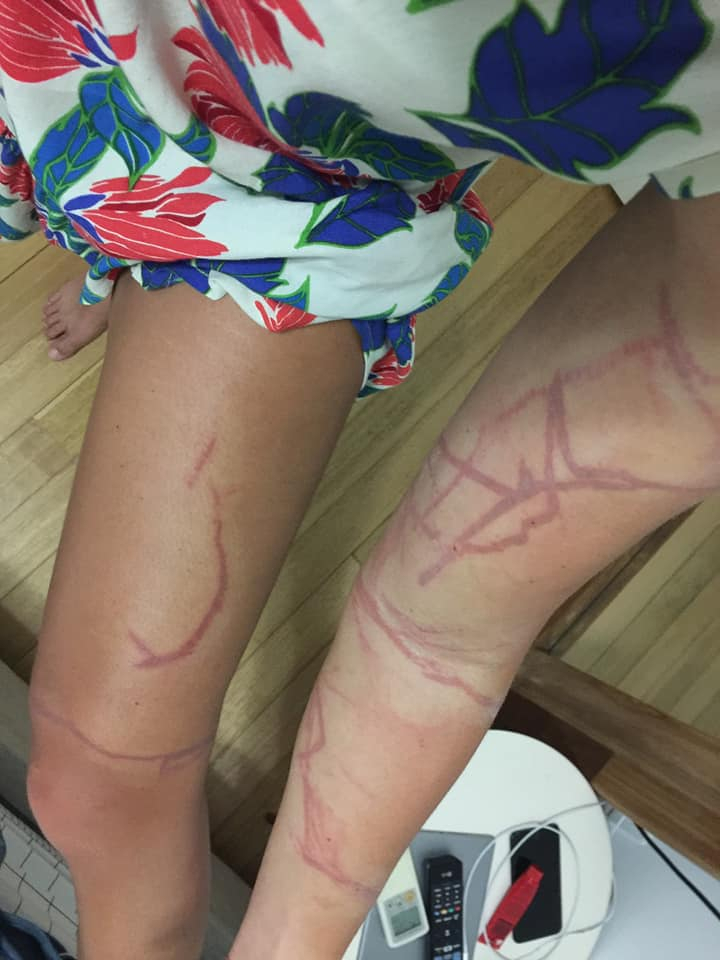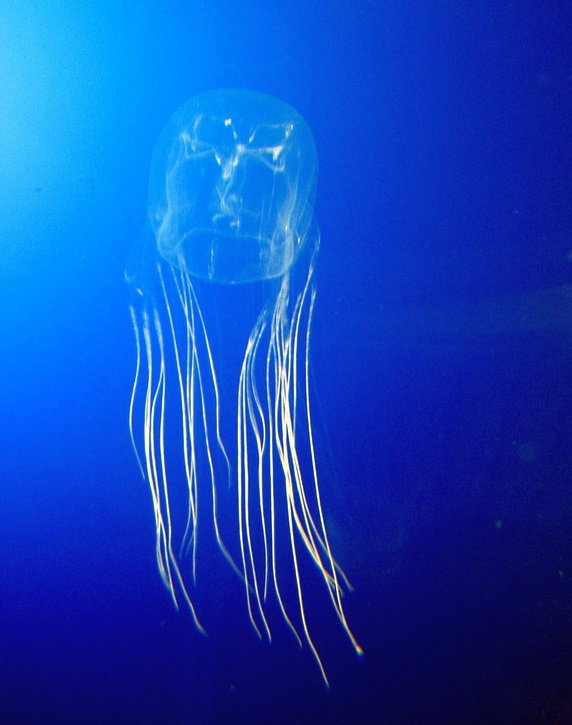Singaporeans — if you thought after months of lockdown, it's the perfect time to go to beaches, be aware. At least two people have fallen victim deadly box jellyfish venom so far in Singapore. However, which could have been potentially fatal, luckily in both cases, victims survived with scars on their bodies.
A child is the latest victim of the box jellyfish, which is considered to be one of the most venomous sea creatures. In March, an Australian woman, Jade Dyson, who has been working in the city-state for the last five years, was also stung badly.
Dyson said she fell victim to the deadly creature while swimming at East Coast beach. "I could barely walk and the left side of my body was convulsing and shaking. My muscles were seized up, there was intense pain in my lower back. My entire body was paralyzed," she told the media.

In the case of the young girl, the four-year-old was swimming in the shallow waters of Palawan beach in Sentosa when the incident happened. Her mother, Carolyn David, rushed to a nearby eatery to pour vinegar on the wound.
One of The Deadliest Sea Creatures
Box jellyfish gets the name for its box-like shape. There are over 50 species of box jellyfish with some of them being the most venomous. Box jellyfish, also known as sea wasps, are generally found in the coastal waters of Northern Australia and the Indo-Pacific waters. They are pale blue and transparent in color. Up to 10 feet in length, it can grow up to 15 tentacles with around 5,000 stinging cells on each of them. Those cells release toxins to stun or kill prey.

The venom, considered to be one of the deadliest in the world, contains toxins that can attack the heart attack, nervous system, and skin cells. In humans, it is fatal too as there have been reports of going into shock and drown. In some cases, victims die of heart failure. In the case of small doses of the toxin, it can be overwhelmingly painful and the pain can stay for weeks with scars.
Where in Singapore?
In Singapore, the sightings of box jellyfish have been reported since March at Palawan Beach, Pulau Seringat, Lazarus Island, East Coast Park, Marina Sentosa Cove, and Tuas.
Dr Karenne Tun, a coral reef biologist and the director of Coastal and Marine, National Biodiversity Centre told media that National Parks Board (NParks) had already started working with local authorities to collect water samples from coastal areas and run DNA analysis to detect the presence of box jellyfish. For now, NParks is putting up signs at Sentosa's beaches warning visitors of the sightings and not to swim.

However, in Singapore, its sightings are unusual. Professor Dean Jerry, Director of Tropical Futures Institute in Singapore believes the change in habitat is a result of climate change. He added that warming of ocean water and change in current might have forced the box jellyfish to move out of their natural habitat.
What Should You Do If You Encounter One?
The first step is to get out of the water immediately. If you have stung by one, rinse the area with vinegar for 30 seconds. Remove the tentacles with a pair of tweezers and don't touch it with bare hands.
Once you remove the tentacles, immerse the area in hot water (40-45 degrees centigrade or 104-113 F) for at least 20-45 minutes. If you have swellings, use ice packs and if there is any open wound, use an antibiotic ointment. If the sting is near eyes, seek medical attention immediately. For severe reactions, move to a nearby hospital immediately.
Don'ts: What you should not do are: use baking soda, meat tenderizer, pressure bandage, urine, alcohol, scraping out stingers, rinse with fresh water, and rub with a towel as all of them could have adverse reactions.
If you spot a box jellyfish in Singapore, call NParks helpline on 1800-471-7300.









